What New Years and Covid vaccines have in common: A fresh start and a chance to reflect
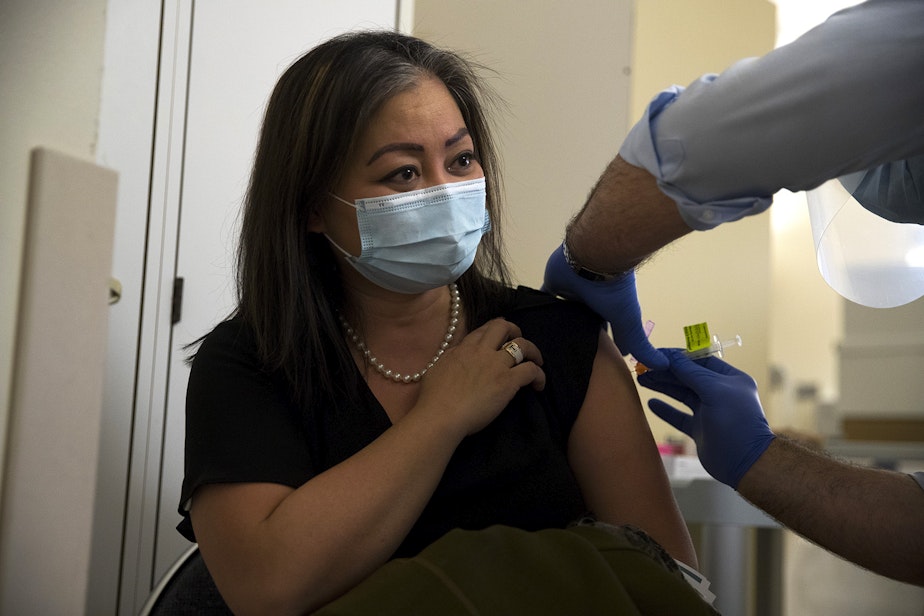
They started rolling out in Washington state around the darkest time of the year. In the weeks ahead we know the days will get lighter – literally – and many hope for the same thing figuratively too.
At the end of last February, Alice Cortez, a nurse, noticed that many of her patients were sick with breathing problems. Cortez works at Life Care Center, a nursing home in Kirkland, Washington.
“We thought it was flu, but the tests were negative, they were all negative,” she said. But something in the back of her head told her this wasn’t right, she said, so she contacted the state Department of Health.
The tests came back positive for coronavirus. Cortez was working the night shift and got called into a meeting.
“When we got the news, the results, we had this moment of silence,” she said. “We could not talk. We could not believe.”
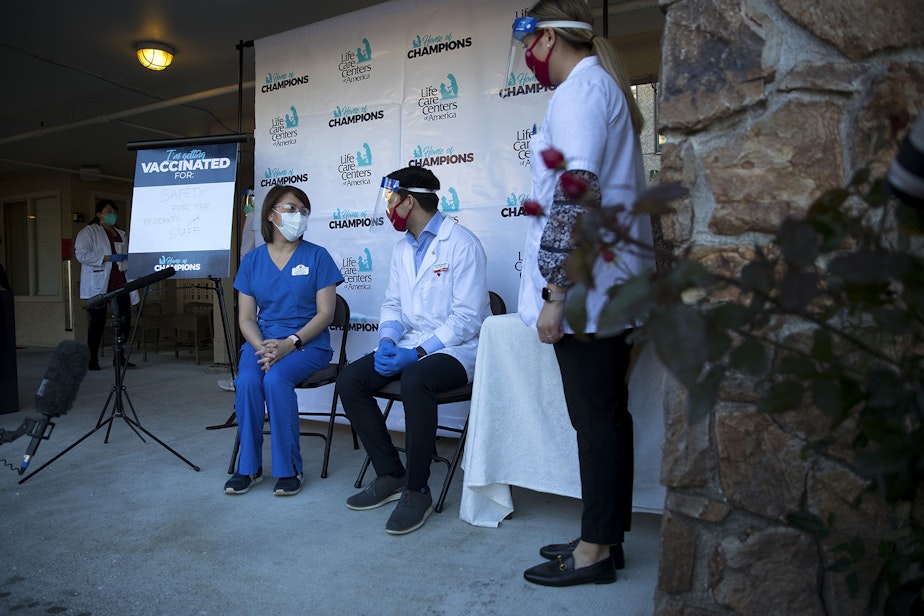
Sponsored
In the 10 months since that time, more than 3,300 people have died of Covid in Washington state. About half were linked to long-term care facilities like nursing homes, and many of the early known cases were linked specifically to Life Care Center of Kirkland.
Yet the mood at Life Care this week was festive, because Cortez and the residents she serves were receiving the coronavirus vaccine.
Vaccines against Covid started rolling out in Washington state around the darkest time of the year. In the weeks ahead we know the days will get lighter – literally – and many hope for the same thing figuratively too.
As part of the rollout across the state, vaccines are arriving at places on the Eastside that were the region’s original hotspots and hardest hit by the first outbreak in the U.S.
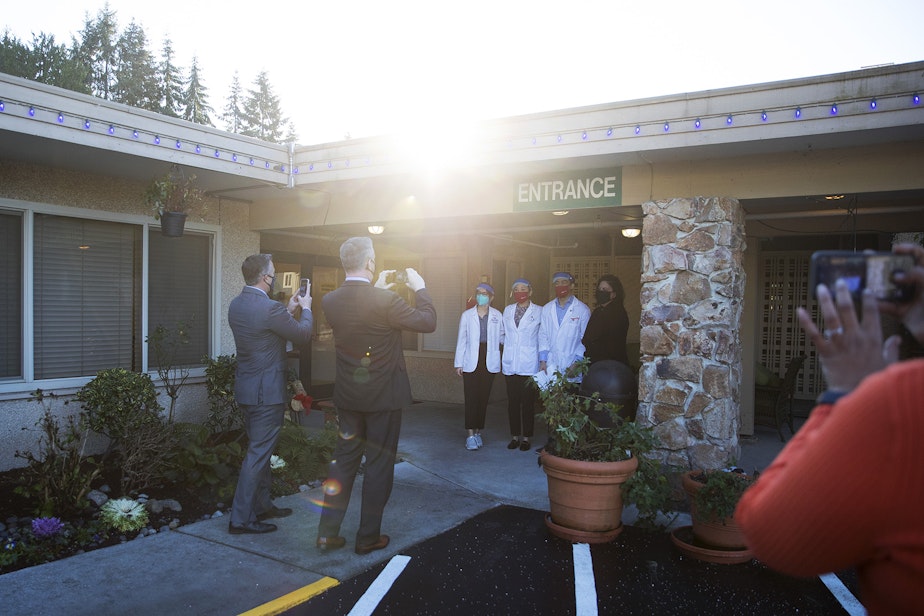
Sponsored
Twenty minutes away at Overlake Medical Center in Bellevue, Erin Hurley got her shot last week, a few days before Christmas.
Hurley is a nurse in the Overlake ER. The medical center was one of the first places Covid patients in the region went – and Hurley worked those early days.
“I've never been to war,” Hurley said. “But it felt like you had to prepare yourself for the absolute worst every single day.”
The day Hurley got vaccinated she was thinking about her mom, who Hurley said is really sick, and her brand-new nephew – whom she hasn’t been able to hold.
She’s also been thinking about bowling. She’s a bowler herself and said that’s one custom that might need a post-pandemic overhaul.
Sponsored
“You stick your fingers in the holes and then you eat the food,” Hurley said. “Then you stick your fingers in the holes.”
Anesthesiologist Angee Baldini was also at the vaccination clinic for his shot of the Pfizer vaccine.
It was bittersweet. The day before, he’d heard a former coworker had died from Covid.
“Certainly a bunch of mixed emotions to get to this stage, right,” he said. “I was fortunate to get here. Some others weren’t so lucky.”
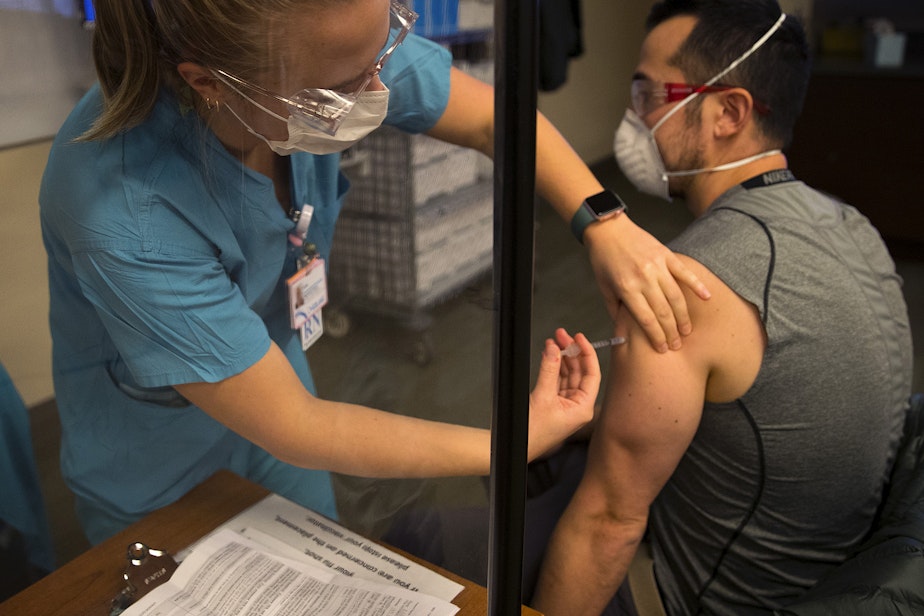
Sponsored
Still, the vaccines offer some relief, he said.
"The mental is much harder than the physical with this Covid game,” Baldini said. “Dealing with the chronic stress, the underlying stress of thinking about if you could get infected or if you could infect a family member.”
A few miles up the highway from Overlake is Evergreen Health Medical Center – another early hotspot.
At the entrance Analia Johnson screened visitors for Covid, asking them to sanitize their hands and pointing a thermometer at their foreheads.
Johnson asks a series of questions about symptoms (“Are you experiencing any unusual cough, fever, shortness of breath…”)
Sponsored
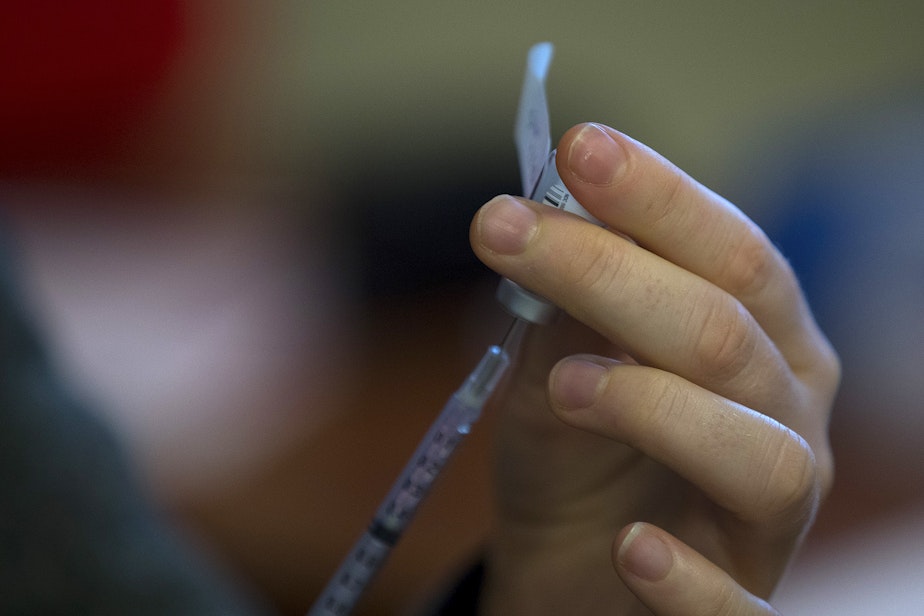
She does this so many times a day that she has created hand motions for each symptom
“Do you want to see them?” she asked, and she pantomimed as moved through the motions. (“…fatigue?” she asks and fake swoons.)
Johnson wants to make it interesting, she said.
Shellea Redd walked in and got screened. She’s a nurse in the emergency department and here for a vaccination. Redd said she wants a little bit of normalcy.
“It’s just me and my husband now,” she said, “and we’re kinda doing that quarantine life.”
They go to work and once a week to the grocery store – and that’s about it. Redd said she misses her family back in Indiana.
“I want to get back to being able to be around people and have that interaction, the closeness that we took for granted.”
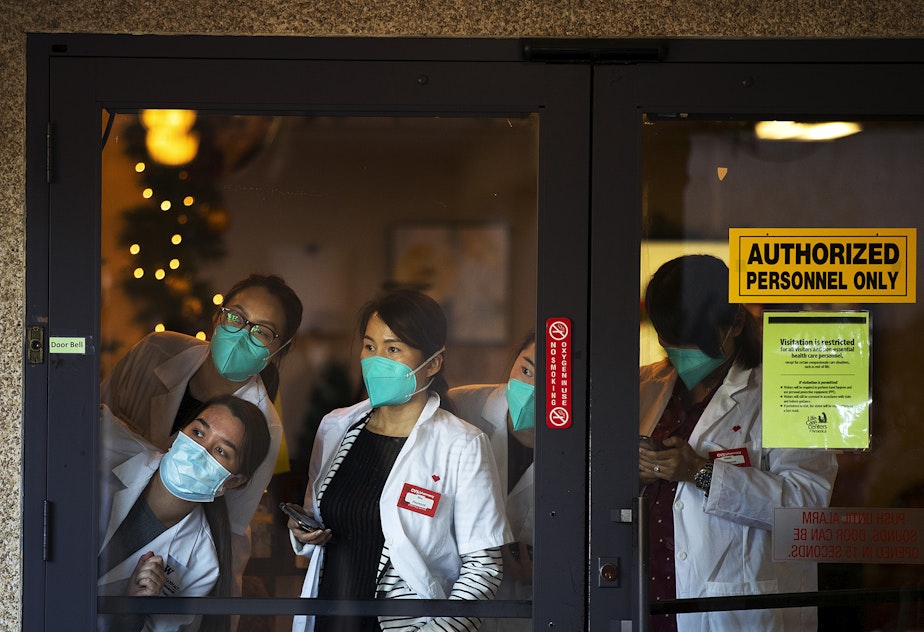
Back at Life Care of Kirkland, Cortez recalled the flurry after the initial positive coronavirus tests. Sometimes she worked 16 hours a day. Dozens of people associated with the Kirkland nursing home died.
Now Cortez took time off and returned to Life Care.
"I came back because this is my home,” she said. “It feels great, and I still see myself in ten years, I will remain as a nurse taking care of our patients."




